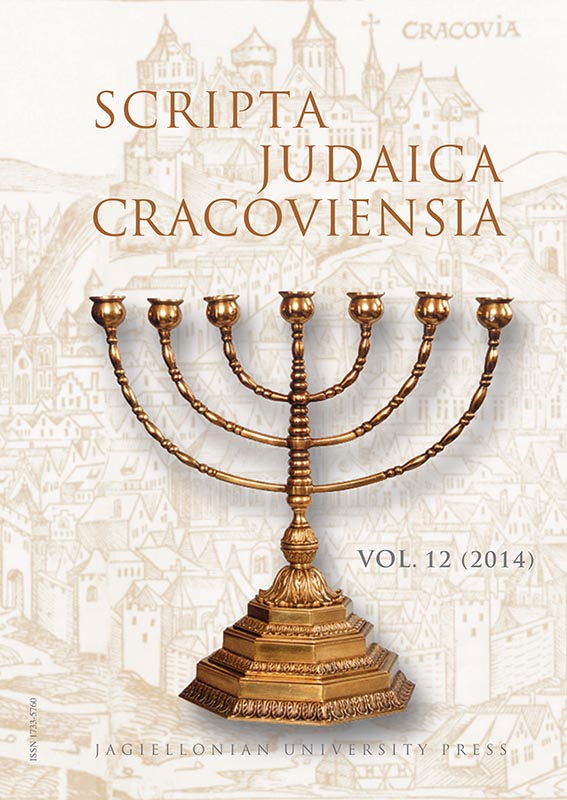In the Beginning: the Jews as a Minority Group in the Middle and the Late Republican Period
In the Beginning: the Jews as a Minority Group in the Middle and the Late Republican Period
Author(s): Samuele RoccaSubject(s): History, Cultural history, Jewish studies, History of Judaism
Published by: Wydawnictwo Uniwersytetu Jagiellońskiego
Keywords: Rome; Middle Republic; Late Republic; Jews; Cicero Pro Flacco; Josephus
Summary/Abstract: In this article I shall present an in-depth study of the condition of the Jews living in the city of Rome during the Middle and Late Republic. I shall make use mainly of epigraphic and literary sources, such as Appianus, Cicero, Josephus, Philo, Suetonius, and Varro. It seems to me, according to a careful reading of epigraphic data as well as the literary evidence presented by Valerius Maximus, that the first record of a Jewish presence in Rome ought to be dated no earlier than the second half of the second century B.C.E. According to Philo, only by the middle of the first century B.C.E. is there evidence of a much larger Jewish presence in Rome. Most of the Jews arrived as slaves in the wake of Pompey’s conquest of the Hasmonean kingdom in 63 B.C.E. and in the aftermath, during Aulus Gabinius’ consulate in 58 B.C.E. Yet there were also some liberti and a few peregrini, or immigrants. Most of them probably settled in the Subura. A hint of how Judaism and Jews were perceived during the Late Republic is given by the writings of Varro and Cicero. It seems that Varro was very impressed by the lack of images in the Jewish religion, an attitude which suggested a certain similarity to earlier Roman cultic practices. On the other hand, Cicero’s Pro Flacco reflects a negative attitude towards Judaism. Judaism is therefore characterized as a Barbarian superstition, opposed to Rome’s traditional values. It seems that the Jews as a group played a very negligible part, yet they were active in the politics of the Late Republic. A careful reading of Cicero’s Pro Flacco can show that during this period Jews still had no communitarian institutions, although they grouped together. Moreover, they were probably clientes of their conqueror patronus, Pompey, and as such they could create political pressure. Most of the Jews supported Pompey until the battle of Pharsalus. However, another group did form, which supported Aulus Gabinius, who had once been a cliens of Pompey. Later on, when Gabinius transferred his allegiance from Pompey to Julius Caesar during the Civil War, most of the Jews of Rome did the same, and switched their allegiance, following the steps of their leader in Judaea, the High Priest Hyrcanus II. According to a careful reading of a passage of Josephus’ Antiquities, which reports the decree of Publius Servilius Isauricus to the city of Parium, Julius Caesar recognized the Jewish communities, till then informal institutions, as collegia licita through the Lex Iulia.
Journal: Scripta Judaica Cracoviensia
- Issue Year: 2014
- Issue No: 12
- Page Range: 7-24
- Page Count: 18
- Language: English

